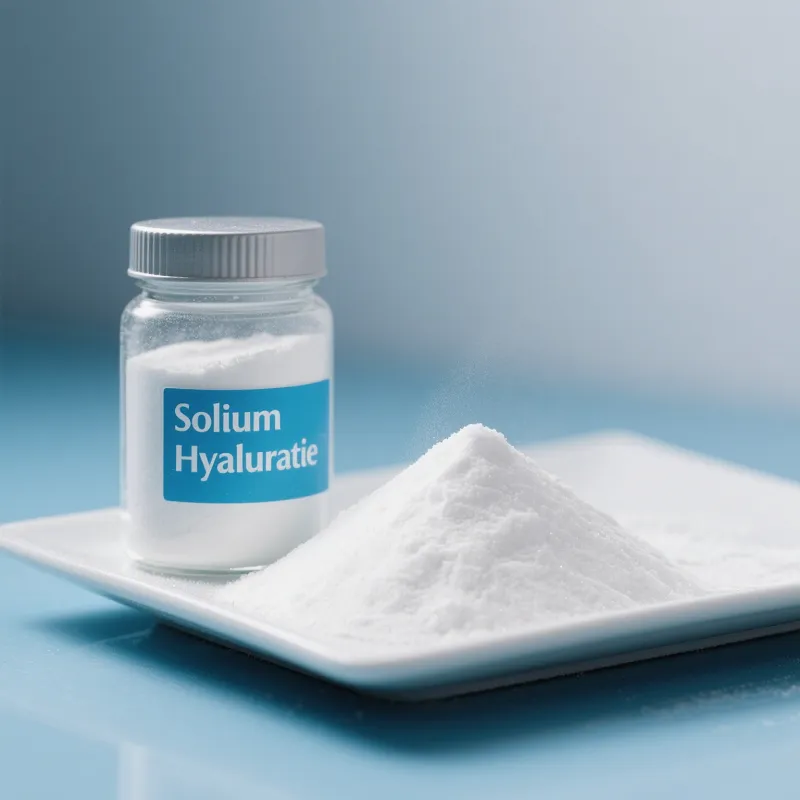
Sodium Hyaluronate Supplier
Gensei is a premier sodium hyaluronate supplier and manufacturer, dedicated to providing high-quality hyaluronic acid derivatives for the cosmetic, pharmaceutical, and nutraceutical industries. We offer a comprehensive range of sodium hyaluronate options, including sodium hyaluronate manufacturer direct supply, sodium hyaluronate wholesale, and sodium hyaluronate bulk quantities. As a globally recognized sodium hyaluronate supplier, including sourcing from sodium hyaluronate china, Gensei ensures consistent quality and competitive pricing. Our sodium hyaluronate is known for its exceptional water-binding capacity, making it an ideal ingredient for hydrating skincare products, joint health supplements, and ophthalmic solutions. Partner with Gensei for your sodium hyaluronate needs and benefit from our expertise and reliable supply chain.
Please note: We are a wholesale supplier and have minimum order quantities.
Have questions about this product? Our team is here to help. For inquiries about multiple ingredients, please use the Contact Us option and include the list of ingredients in your message.
Sodium Hyaluronate CAS No.: 9067-32-7
Chemical Name: Sodium hyaluronate
Synonyms:
- Hyaluronic acid sodium salt
- Sodium hyaluronan
- HA sodium salt
CB Number: CB23378
Molecular Formula: (C₁₄H₂₀NNaO₁₁)n (where ‘n’ represents the number of repeating disaccharide units)
Molecular Weight: The molecular weight varies greatly depending on the chain length (degree of polymerization), ranging from a few thousand Daltons to several million Daltons.
MDL Number: MFCD00151083
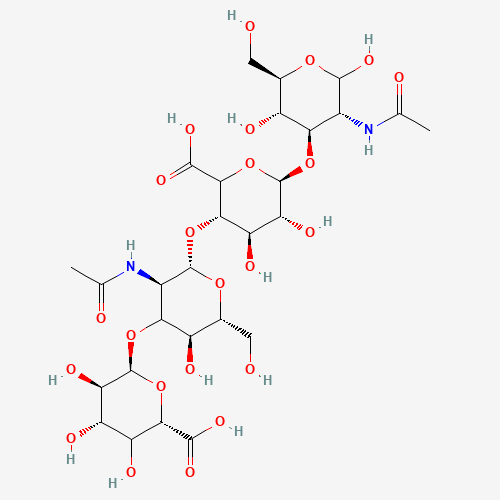
Sodium Hyaluronate Manufacturing Process Flowchart
Sodium Hyaluronate is typically produced through bacterial fermentation.
(Streptococcus zooepidemicus or other suitable bacteria)
(Bacteria are cultured in a nutrient-rich medium to produce hyaluronic acid)
(The fermentation broth is processed to remove bacterial cells and other impurities. This may involve filtration, centrifugation, and enzymatic treatment)
(Hyaluronic acid is precipitated from the purified solution, often by adding alcohol)
(The precipitated hyaluronic acid is neutralized with a sodium source (e.g., sodium hydroxide) to form sodium hyaluronate)
(The sodium hyaluronate is dried to remove moisture, typically using methods like vacuum drying or spray drying)
(The dried sodium hyaluronate is milled and sieved to achieve the desired particle size distribution)
(Testing for molecular weight, purity, heavy metals, endotoxins, and other specifications)
(The Sodium Hyaluronate powder is packaged in suitable containers under controlled conditions)
This flowchart provides a general overview of the Sodium Hyaluronate manufacturing process using bacterial fermentation. The specific steps and conditions may vary depending on the manufacturer.
Our State-of-the-Art Manufacturing Facilities
Explore our modern facilities equipped with advanced technology to ensure the highest quality in the production of your vitamins, herbal extracts, minerals, and amino acids.

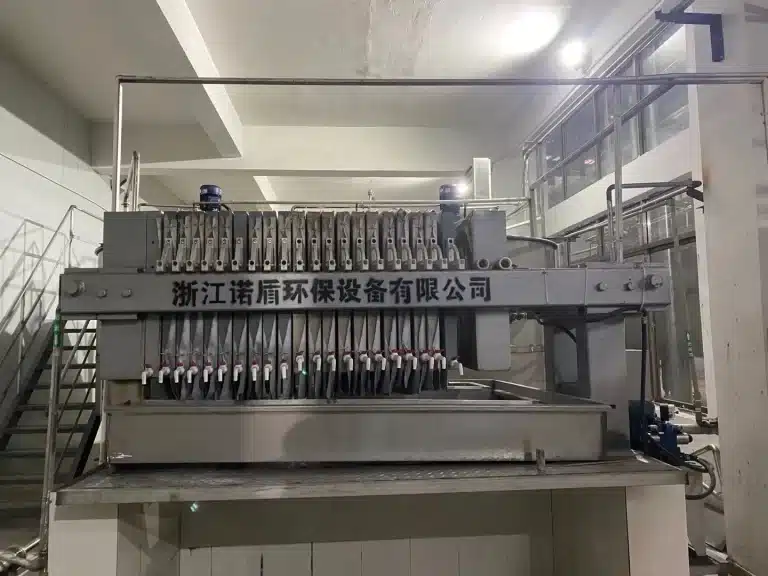
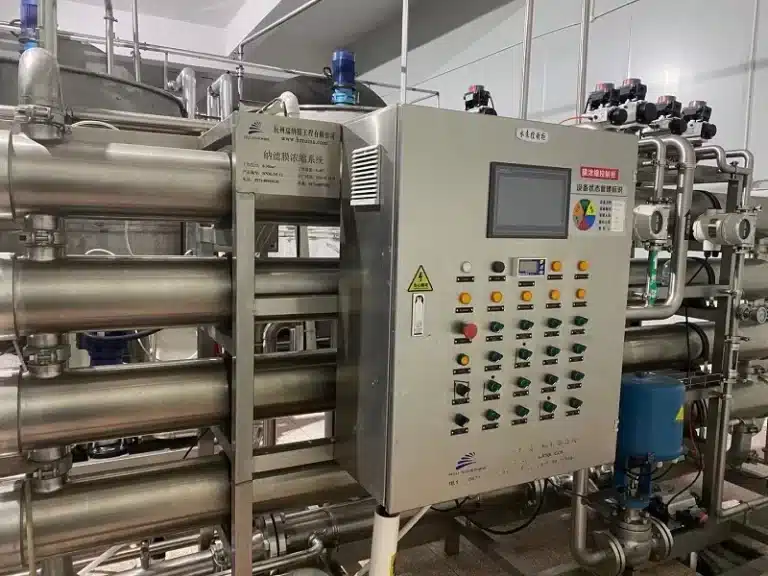
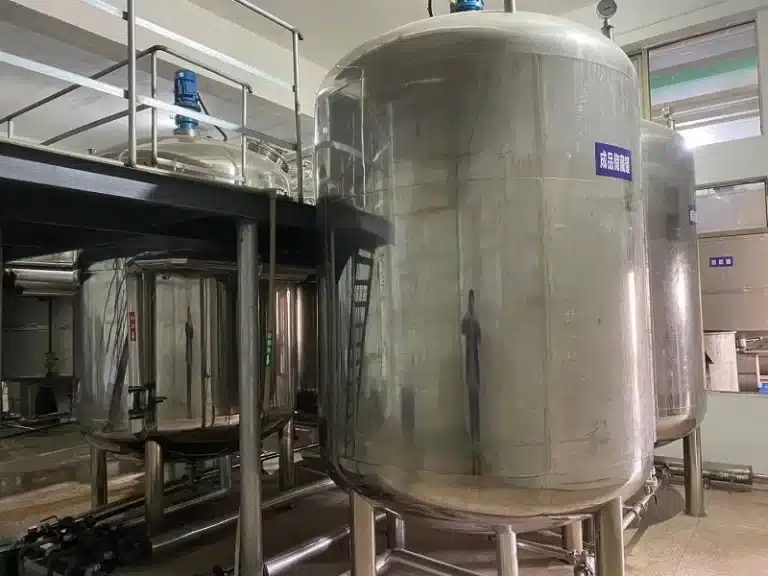
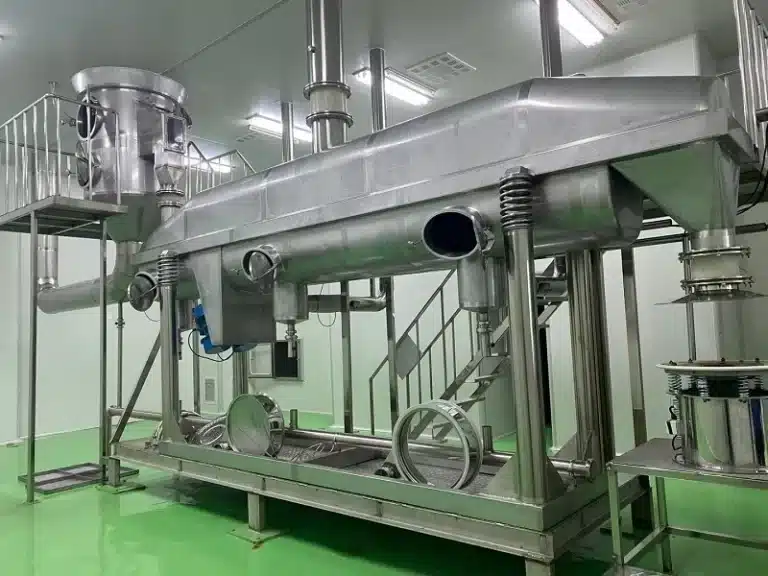






FAQs
Yes, sodium hyaluronate is the sodium salt form of hyaluronic acid. Hyaluronic acid is a large molecule, and in skincare and supplements, it's often used in its sodium salt form because it is more stable and water-soluble, allowing for better penetration into the skin.
No, sodium hyaluronate is a humectant, meaning it attracts and retains moisture. However, in very low humidity environments, it might draw moisture from the deeper layers of the skin if there isn't enough moisture in the air, potentially leading to a temporary feeling of dryness. This is usually mitigated by using it in conjunction with occlusive ingredients that trap moisture.
There is no scientific evidence to suggest that sodium hyaluronate raises blood pressure. It primarily functions as a hydrating and lubricating agent.
Sodium hyaluronate works by binding to water molecules, holding up to 1000 times its weight in water. This helps to hydrate the skin, lubricate joints, and provide cushioning in tissues.
Sodium hyaluronate is primarily made through bacterial fermentation. Certain types of bacteria are cultured in a nutrient-rich medium, where they produce hyaluronic acid. The hyaluronic acid is then purified and converted to its sodium salt form. Historically, it was also extracted from animal sources like rooster combs.
The way to use sodium hyaluronate depends on the product. In skincare, it's found in serums, creams, and masks, and should be applied according to the product instructions. In supplements, it's taken orally as directed. For injections (e.g., in joints), it is administered by a healthcare professional.
No, sodium hyaluronate is not a steroid. It is a polysaccharide, a type of carbohydrate composed of repeating units of sugar molecules. Steroids are a class of lipids with a different chemical structure.
No, sodium hyaluronate is generally considered very good for the skin due to its excellent hydrating properties. It can help improve skin moisture, reduce the appearance of wrinkles, and improve skin texture.
Yes, sodium hyaluronate can be beneficial for hair by attracting and retaining moisture, which can help to hydrate the scalp, reduce dryness and frizz, and improve the overall appearance and feel of hair.
Yes, sodium hyaluronate is generally considered safe for topical use, oral supplementation, and injections when used as directed.
While generally considered safe, pregnant and breastfeeding women should consult their healthcare provider before using sodium hyaluronate supplements or undergoing injections. Topical use is generally considered low risk.
Yes, sodium hyaluronate is often used in veterinary medicine, particularly for joint health in dogs. It is generally considered safe when used as directed by a veterinarian.
Yes, sodium hyaluronate is commonly used in eye drops and during eye surgery due to its lubricating and hydrating properties. It is considered safe for ophthalmic use.
Sodium hyaluronate produced through bacterial fermentation is typically vegan. If it is derived from animal sources (like rooster combs), it would not be vegan. Most commercially available sodium hyaluronate is produced via fermentation and is therefore vegan-friendly.
As mentioned earlier, sodium hyaluronate is primarily produced through bacterial fermentation. Historically, it was also extracted from animal sources.
There is no scientific evidence to suggest that sodium hyaluronate causes cancer. In fact, some research indicates that hyaluronic acid may play a role in regulating cell growth and may even have anti-cancer properties, although more research is needed in this area.

